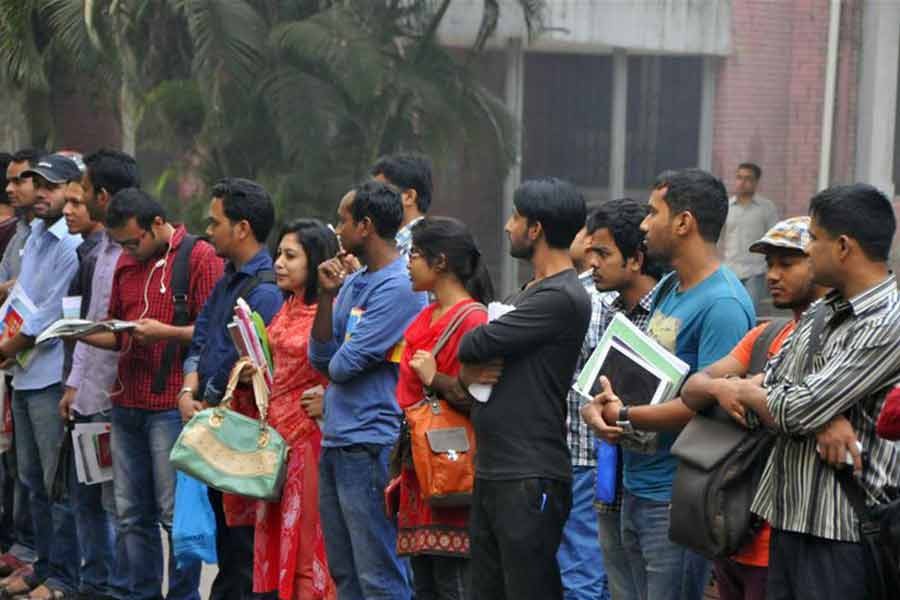Over the past fifty years since Bangladesh became independent, the country has been through a spectacular transformation. A lot has changed in terms of infrastructure, approach, and evaluation. As the nation continues to look ahead to attain higher goals, its standards and objectives become more and more complex. Through out its journey from a least developed country, Bangladesh demonstrated consistent efforts and determination to meet the reality that persists today.
Modernisation and digitalisation have enabled the people, especially the youths, to gain better compatibility with the rest of the world. They have also been remarkably successful in extracting the utility of the 'digital revolution,' showing academic and professional excellence both inside and outside the border. Now when the highly talented youth from Bangladesh win trophies at international Olympiads or secure top-ranks in the Ivy League institutions - the world no longer finds it strange. This has mostly been possible due to the expansion of skill development.
Moreover, what Bangladesh is currently relishing is called a 'demographic dividend' - a situation where the percentage of the working-age population is higher than the rest. It means now there is more potential in the country than it ever had in terms of human resources. Better education, better exposure to self-development, multi-skill building, better career choices, and many more factors have come together to mark an unprecedented momentum for the country. This demographic dividend is expected to be the game-changer for Bangladesh in the years ahead.
The rise in the initiatives to nurture and develop youth in Bangladesh is certainly worth mentioning here. The government of Bangladesh has been emphasising this matter through various youth development initiatives across the country. The 'National Youth Policy 2017' aims to accelerate the growth of the youth to the maximum possible extent. There is also the 'Department of Youth Development', which has been facilitating the growth of the potential future leaders since 1978. The a2i, under the government, has also been promoting skill development among the youth and organising various initiatives in this regard. Countless incentives and scholarships are being provided by the government every year to support the young students who show extraordinary potential but lag behind due to poverty or such limitations.
Besides the government, many private organisations are also stepping up with innovative ideas, workshops, campaigns, and competitions to ignite the spirit of learning among the young minds.
Let me mention an encouraging move that took place very recently. The leading ICT solution and service provider Huawei has partnered with the top engineering university of Bangladesh, BUET to launch ICT academy where the students will get several trainings under the affiliation of more than 900 other ICT academy all over the world. They will also get the opportunity to have international job fare after the programme. The same company is bringing together several projects like ongoing Bangladesh ICT Skills Competition, Seeds for the Future, Digital Bus and other several projects to empower the youth of this country. In order to fulfill this journey, it has partnered with several government and academic institutions.
Collaboration among different role players ease the process and generate better results. It decreases the chance of missing out on any important trait which might not be as much visible. This process also fetches diversified initiatives or works in the society for its development allowing each party to contribute with its expertise in relevant fields.
As the process of growth becomes more cohesive, the learning curve for the youth eventually becomes more complex and influenced by a greater number of factors. Modern technology is creating newer demands for competency and adaptability from the youth at such a rapid pace that a nation singlehandedly can barely keep up. This is the very reason why it is now essential to make sure that both the public and private sectors work in tandem to safeguard the evolution of its young population. The future, quite presumably, will be dominated by countries that have a sound workforce with top-notch skills in ICT and other sectors. And with contributions from partners in the private sector, Bangladesh seems to be just on track so far for an auspicious milestone.
Dr Fahad Ibrahim is Lecturer in Marketing at Swansea University. [email protected]


